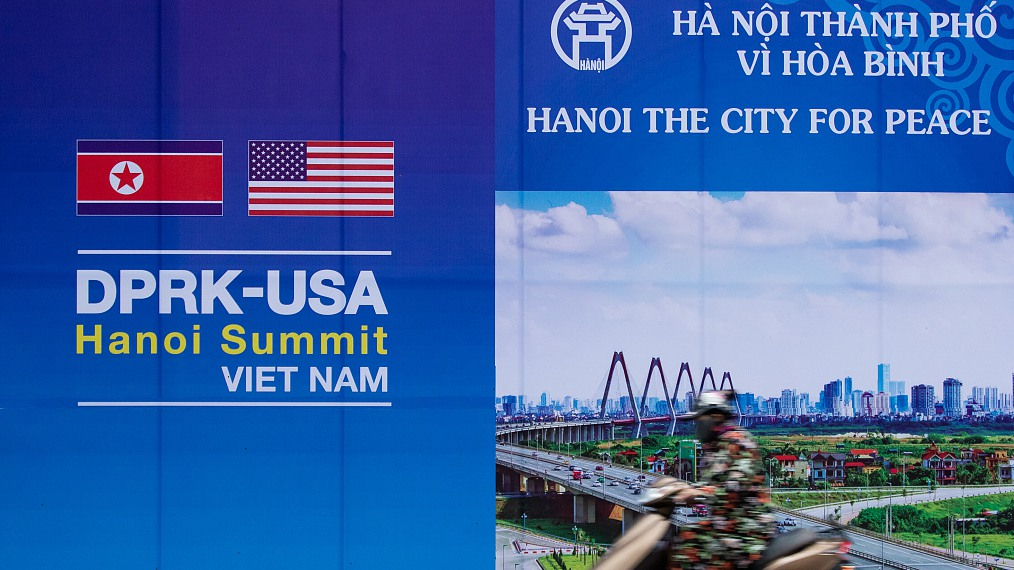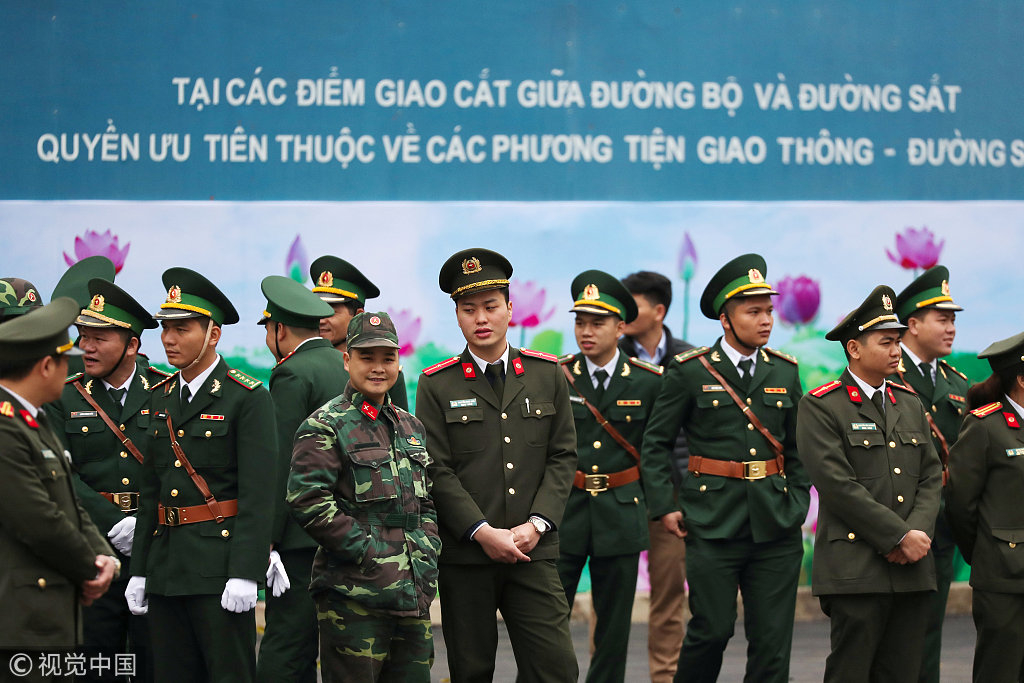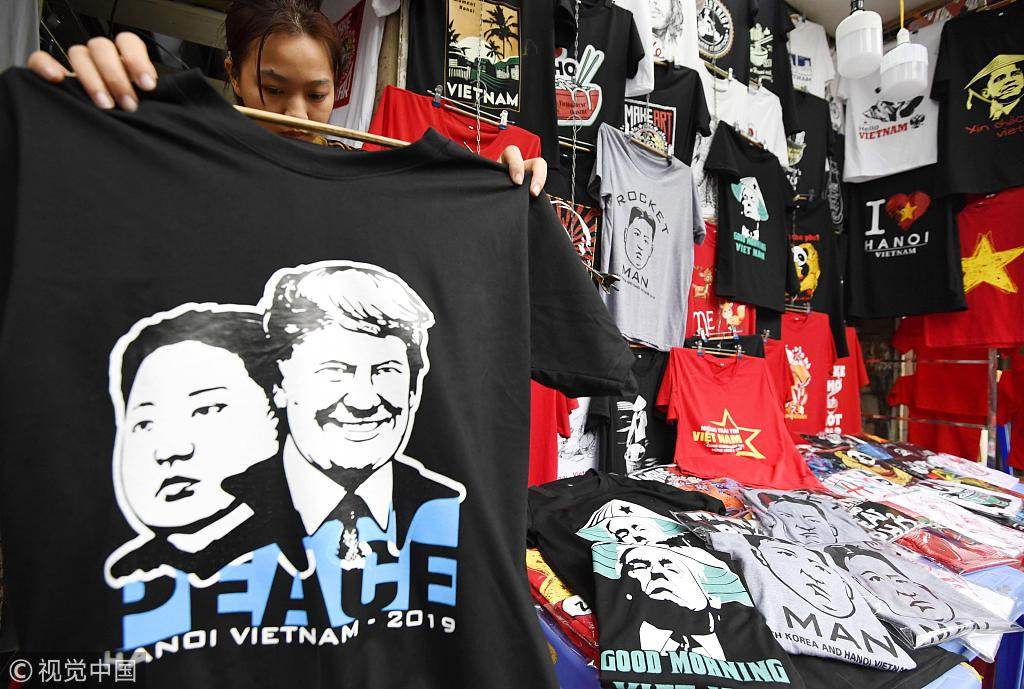
Opinion
21:40, 25-Feb-2019
Pompeo's sanctions pragmatism will pay off
Tom Fowdy

Editor's Note: Tom Fowdy is a UK-based political analyst. The article reflects the author's views, and not necessarily those of CGTN.
Just days ahead of a historic second summit between DPRK leader Kim Jong Un and U.S. President Donald Trump in the Vietnamese capital of Hanoi, the U.S. administration has signaled meaningful flexibility in its position toward Pyongyang in exchange for meaningful concessions on the latter's nuclear program. That is, the willingness to offer some form of sanctions relief to the DPRK providing that significant process can be offered toward denuclearization at the summit.
Although Pompeo did not directly say what was on offer, his remarks indicate a softening of a stance held for almost a year that relief could not be offered to have the DPRK fully denuclearized.
These comments should be welcomed. It shows that the U.S. is gearing up to score a reciprocal deal in Hanoi which will undoubtedly please both countries and allow them to claim victory to their retrospective political audiences.
Although critics of the summit will be quick to talk down these actions as "appeasement" or naivety, demanding that Washington gives away less and Pyongyang gives away more, it should be made undoubtedly clear that this form of bargaining is the most realistic and sensible means available to taming, controlling and capping the nuclear development of the DPRK in a way which can satisfy the security interests of the United States. With neither side able to ignore the demands of the other, this is the way forward.

Vietnamese military at Dong Dang Railway Station, where DPRK leader Kim Jong Un is expected to arrive, at the border town of Dong Dang, Vietnam, February 25, 2019. /VCG Photo
Vietnamese military at Dong Dang Railway Station, where DPRK leader Kim Jong Un is expected to arrive, at the border town of Dong Dang, Vietnam, February 25, 2019. /VCG Photo
Does sanctions relief constitute a form of appeasement? Among some voices in Washington, this is the prevailing state of mind. Those most consistently opposed to diplomacy with the DPRK have continually argued that Pyongyang cannot be trusted to make a deal with the view that they will persistently "cheat" on it.
They claim diplomacy has been tried, tested and failed, pointing to failed breakthroughs in 1994, 2006, 2009 and 2012. In each instance, such voices have blamed Pyongyang's intentions for the collapse of talks or unfilled promises, usually reducing the reasoning to the mere "evil intent" of the leadership. Therefore, so it goes, it is a waste of time to try and deal with the DPRK again; the outcome can only be to their advantage.
With such voices, "moralism" ultimately defies realism. This interpretation of offering "concessions" to the DPRK is problematic, without historical nuance and extremely one-sided. It ignores that on many occasions, Washington has not always been honest, good willed or sincere toward the DPRK.
America's own sense of heroism and confidence in ideological supremacy has made it impossible to assess the rugged diplomatic history between the two countries in a nuanced way, with hawkish voices persistently attempting to defile objective viewpoints as implicit endorsements or apologize for what the DPRK does wrong (when that is seldom the case), and thus continued antagonism as a supposed moral standpoint is the only acceptable answer until Pyongyang transforms itself to exist on all of America's terms.
But of course, policy in practice cannot always replicate idealism. The reality is that due to longstanding failures in relations between the two countries and the corresponding history of mutual antagonism, the DPRK has developed a nuclear capability that it might exist on terms acceptable to itself than to concede to those who strive to change it by force. Low-level diplomacy failed to halt Kim's advances in capability, which soon shut the door on the idea of the West dictating to Pyongyang.
The Trump administration was correct in identifying these policy failures. To bring the DPRK to the negotiation table, realism was needed, thus came Trump's "tough" strategy.
Some, myself included, feared that it was irrational, hell-bent on war and destruction, but in the end, it turned out Trump was merely pitching his hand for a real deal. It is a deal, which as Pompeo indicates, will possibly include some sanctions relief but without meaningful reciprocity there is no other way by which it can work-a point which the moralists have no answer for.

T-shirts with images of DPRK leader Kim Jong Un and U.S. President Donald Trump are found in a store, Hanoi, February 23, 2019. /VCG Photo
T-shirts with images of DPRK leader Kim Jong Un and U.S. President Donald Trump are found in a store, Hanoi, February 23, 2019. /VCG Photo
Do not be fooled into the narrative that sanctions relief builds up a one-sided agreement in Pyongyang's favor either. Let us not forget in the build-up to where we stand now, the President vastly increased leverage over the DPRK by tightening sanctions, putting Pyongyang in a position whereby whilst they may have nuclear capability.
If Kim wants to realize his economic goals he too must make concessions to Washington and thus surrender components of his inaugural goal of attaining a capability to strike the United States. Trump said that wouldn't happen, he was right.
Therefore, in Kim's own willingness to strike a deal, he too is offering flexibility on his ambitions as much as the U.S. is on the bid to make the DPRK fully denuclearized. Far from appeasement, this is both sides meeting in the middle, it is real and substantial business.
All in all, I am confident that Pompeo's sanctions pragmatism will pay off in creating an agreement which will induce stability, progress, and security in ties between the U.S. and the DPRK.
The Trump administration has many critics, but in its move to smash long-held norms, conventions, and attitudes in how to deal with the DPRK, it is creating a way forward which would have otherwise never been possible.
Ignore the hawks, America is not in a position of weakness, and the argument that confrontation and antagonism of the DPRK should continue unabated is itself the very staple definition of the historical failures by which they otherwise blame on engagement.
All eyes on Hanoi!
(If you want to contribute and have specific expertise, please contact us at opinions@cgtn.com.)

SITEMAP
Copyright © 2018 CGTN. Beijing ICP prepared NO.16065310-3
Copyright © 2018 CGTN. Beijing ICP prepared NO.16065310-3